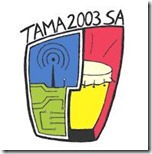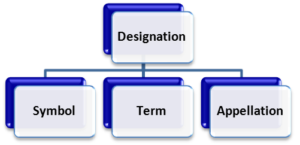While it is hard to avoid soccer these days—not that I, who enjoyed the Sommermärchen (the fabulous atmosphere) in Germany four years ago, would want to—, it is not hard to link South Africa, soccer and terminology. So, let me leave corporate terminology management behind for this posting and talk a bit about South Africa from a language and terminology point-of-view.
 Let’s start with South African English. If you visit this beautiful country, you will very likely notice that ’just now’ “denotes varying levels of urgency. Phoning someone ‘now now’ is sooner than ‘now’ or ‘just now’ but not as soon as ‘right now’” according to this short glossary of South Africanisms.
Let’s start with South African English. If you visit this beautiful country, you will very likely notice that ’just now’ “denotes varying levels of urgency. Phoning someone ‘now now’ is sooner than ‘now’ or ‘just now’ but not as soon as ‘right now’” according to this short glossary of South Africanisms.
In their latest blog, ‘South African World Cup Draws Multilingual Audiences’, Common Sense Advisory talks about the language industry benefitting from the World Cup, which is not a surprise: Large international events always are. I fondly remember my time at the Atlanta Olympics with hundreds of other interpreters. I worked for overtired German journalists, who would normally get away without an interpreter, but long hours and the Southern accent incapacitated them. Back then, I had put together my own glossary of sports terminology. For the World Cup, we don’t need to: CLS Communication just released a multilingual World Cup dictionary in five European languages. I never knew that “Goal” is used in Swiss German. I am sure you’ll find other little surprises in the CLS Football Dictionary. Speaking of football, former Microsoft colleague and good friend, Licia Corbolante, points out cultural differences with regard to soccer in her Italian blog.
But the World Cup is just an event that lets us focus on South Africa. The country has had a rich multilingual history. With the end of apartheid came the recognition of eleven official languages: Afrikaans and English as well as the following nine indigenous languages: seSotho sa Lebowa, seSotho, seTswana, siSwati, Tshivenda, Xitsonga, isiNdebele, isiXhosa and isiZulu. We, in Europe and America, are used to other multilingual countries, like Canada, Switzerland or Belgium, leading multilingual topics. But the general level of understanding of terminology issues in South Africa makes the US look like a developing nation.
There are many governmental bodies who do terminology work. The organization charged with promoting language issues is the Pan South African Language Board:
 “…PanSALB is a statutory body established to create conditions to develop and promote the equal use and enjoyment of all the official South African languages. It actively promotes an awareness of multilingualism as a national resource.” (http://www.pansalb.org.za/index.html).
“…PanSALB is a statutory body established to create conditions to develop and promote the equal use and enjoyment of all the official South African languages. It actively promotes an awareness of multilingualism as a national resource.” (http://www.pansalb.org.za/index.html).
The establishment of terminology is merely one of PanSALB’s many tasks and services. PanSALB members have also been actively involved in the creation of Microsoft terminology accessible on the Microsoft Language Portal in the following South African languages: Afrikaans, isiXhosa, isiZulu, seSotho sa Lebowa, and seTswana.
 A look at the website for the TAMA (Terminology in Advanced Management Applications) conference in 2003 shows the multitude of terminology projects under way in South Africa: From the establishment of legal terminology in South African languages by organizations, such as the Centre for Legal Terminology in African Languages, to the work of the Terminology Subdirectorate of the National Language Service. And in time for the World Cup, the Department of Arts and Culture sponsored the publication of a Multilingual Soccer Terminology List.
A look at the website for the TAMA (Terminology in Advanced Management Applications) conference in 2003 shows the multitude of terminology projects under way in South Africa: From the establishment of legal terminology in South African languages by organizations, such as the Centre for Legal Terminology in African Languages, to the work of the Terminology Subdirectorate of the National Language Service. And in time for the World Cup, the Department of Arts and Culture sponsored the publication of a Multilingual Soccer Terminology List.
Let me finish with a personal story: When I was in South Africa for TAMA in 2003, I had an exchange with a cab driver that really made me a terminologist. Ok, I had had the title “terminologist” since 1998, but I never told anyone. It was often too much trouble to explain what terminologists do. So, when the cab driver asked me what I had come to South Africa for, I told him that I was in Pretoria for a conference. “What subject area?” he kept prying. When I said terminology management, he responded, “oh, I have always been interested in semiotics.” Goooooooaal! Never after this conversation have I dumbed down what I really do.
*Borrowed from “Scatterlings of Africa” by Johnny Clegg
 ISO 704, for example, says “a terminology shall include lexical units that are adequately defined in general language dictionaries only when these lexical units are used to designate concepts that form part of the concept system.” Definition by exclusion–that is not a bad start.
ISO 704, for example, says “a terminology shall include lexical units that are adequately defined in general language dictionaries only when these lexical units are used to designate concepts that form part of the concept system.” Definition by exclusion–that is not a bad start.